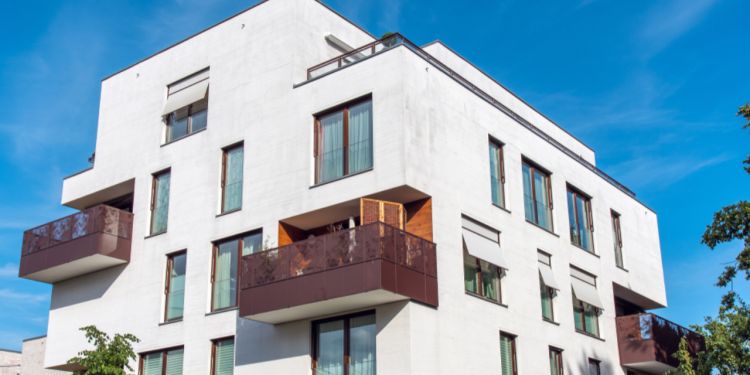
Buying property in Berlin is easier than in most European cities when it comes to the bureaucracy and formalities of the purchase. While prices have risen dramatically in the past years, they are still well below the rates of London, Zurich, Munich, Paris, and Amsterdam, for example.
Considering Berlin's character and favourability among expats, many of the new buyers are foreign investors. However, there is a lack of housing offers compared to the high demand, meaning that real estate prices continue to rise. Two of the most expensive boroughs in Berlin to buy property in are Mitte, which is in the city center of Berlin, where all the cultural and commercial activities occur, and Steglitz-Zehlendorf, which has bigger houses and is more family-oriented.
Reasons for buying a property in Berlin
The most important thing to consider before starting to look for a property in Berlin is first, why you want to buy real estate, and then, why specifically in Berlin. The answers you will give to these questions will affect the area you should be looking at, the size of the property, and the type of purchase — is it for personal use or for resale? Nevertheless, there are several laws in Germany to prevent real estate speculation, which has created greater price stability, but it also means that shifting property for profit is a more difficult task. For example, if you sell a property more than 10 years after its purchase, you will avoid the capital gains tax (25% of the profit of the sale). Also, if you are planning to rent your property, be aware of the tenancy agreements — it is very hard to evict tenants in Berlin, even if you are the owner and want to move into your property.
Financing for purchasing real estate in Berlin
There is plenty to suggest that real estate prices in Berlin are inflated, but this is mainly because housing construction is below the necessary quota while Berlin is becoming more and more attractive, especially among young professionals and expats looking to enter a strong and stable European labor market. The predictions are that the scarcity of real estate will continue to increase as building new housing in Berlin is challenging due to bureaucracy and the high cost of acquiring land. However, prices vary significantly from one borough to another, and the further out you go, the cheaper the property becomes. Amid this situation and as the city center gentrifies, the edges of Berlin are seeing this as an opportunity to prosper and establish their value. These days, many young people and artists live in the outer boroughs of Berlin, while boroughs such as Charlottenburg and Mitte remain unapproachable to average buyers.
Good to know:
Many foreign buyers have trouble obtaining German financing for more than 50% of the real estate's value. Make sure you have good credit in Germany and ensure that you are eligible to obtain additional loans from financial institutions in your home country.
Signing the real estate purchase contract in Berlin
Even though you must review the real estate purchase contract thoroughly with the help of a lawyer and a translator, if necessary, you may need to move fast as sellers usually have many buyers lined up, meaning that properties rarely stay on the open market for long. First and foremost, make sure that you have all financing in order before committing to a property so you can sign quickly once you find the right place for you. Then, familiarise yourself with the documents, taxes, and other formalities regarding such a big purchase. Note that notaries (who must be public) will not advise on your purchase as they play a strictly administrative and impartial role. They will stay loyal to the responsibilities for which they are paid (i.e., to ensure the paperwork is correct and signed in their presence).
Good to know:
Before signing a contract, make sure there's also a breakdown of the expected ongoing expenses, such as the monthly budget for building maintenance if you are buying an apartment. Spaces such as stairwells are usually considered common areas, and expenses for their maintenance are shared among the flat owners. Also, you can ask for an assessment of the property's energy consumption to get an idea of ongoing heating costs.
German property laws
You will have to seek advice from a lawyer regarding the valid property laws in Germany at the time of your purchase, as changes may have occurred since the last time you were informed. For example, in 2021, Berliners voted in a local referendum, supporting the eligibility of the city's authorities to take into public ownership more than 200,000 properties that currently belong to private real estate companies, owning over 3,000 home units each. Deutsche Wohnen was the main target of this referendum, as the company holds around 113,000 homes in the city. However, the referendum has not yet led to legal action and, for the time being, remains a topic under discussion until the ruling parties in the Berlin Senate decide to move forward and make it a law.
Similarly, in 2020, Berlin approved a rent cap to freeze residential rental prices in response to the high rental costs in the capital city in the past ten years, but a year later, Germany's highest court ruled that the measure was illegal, meaning those who had had their rent lowered ended up having to pay the difference back. As Berlin gets more popular and more expensive, locals are taking action, and politicians are responding. The city may seek a stronger hand in building public housing, which will squeeze availability in the private market. Foreigners investing in real estate are being targeted with suggestions for new taxes to trim down real estate speculation.
Good to know:
Proposals may become law soon, so be aware of how these conversations could affect your plans, especially if you are investing in real estate for profit and not personal use.
We do our best to provide accurate and up to date information. However, if you have noticed any inaccuracies in this article, please let us know in the comments section below.












Comments